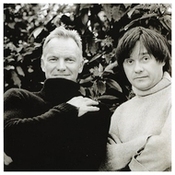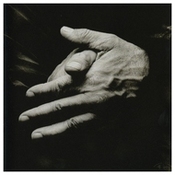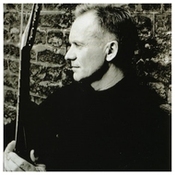
Songs From The Labyrinth
Dec
7
2008
Kuala Lumpur, MY
Plenary Hallwith None
Sting brings life to lute tunes...
Sting brought life and charm to historic, brooding lute tunes from the Elizabethan era during his classical concert in Kuala Lumpur last weekend.
Pop music legend Sting regaled scores of fans with a flawless show at the Plenary Hall, KL Convention Centre on Sunday night. Those who feel you missed out on a evening of hits like 'Every Breath You Take', 'Roxanne', 'Englishman in New York', 'Brand New Day' and the like need not fear... you missed out on something else altogether!
Sting was touring in support of 'Songs from the Labyrinth', a recording of his interpretations of the songs of Elizabethan lute maestro John Dowland (1563-1626). The album, which emerged in 2006, was a remarkably strong seller for a classical record, and is now getting its due, after a year long hiatus during which Sting attended to the small matter of a Police reunion world tour.
Despite the concert being only moderately well attended Sting, known as Gordon Sumner to his parents, turned in a highly professional performance which allowed him to indulge his admiration for Dowland's music, yet acknowledged his audience's needs with a few surprise ''covers'' thrown in at the end of the night.
The night began when a bearded yet elegantly-dressed Sting, now 57, appeared on stage to much applause only to introduce his opening act, the eight-member vocal choir Stile Antico. The octet presented a short set of six songs, most of them with Christmas/winter themes, culminating in the standard 'Silent Night'.
Sting then re-emerged to take centrestage with Bosnian lute player Edin Karamazov (who I hope will forgive me for saying that in a red velvet suit and unkempt hair, looked for all the world like the long-lost brother of the late British actor Ralph Bates!).
Surrounded by a battery of lutes, the real Labyrinth performance began with Sting reading from the letters of Dowland, who in real life was frustrated in his ambition to be court musician to the then reigning monarch of England, Queen Elizabeth I. Throughout the course of the night, Sting read as Dowland's letters were both pleading (particularly to the Queen's secretary Sir Robert Cecil) and boastful (he does seem to be something of a name-dropper as he describes his various successes in the courts of Germany, Italy and France).
Regardless of Dowland's own curious personality, he was a giant on his instrument, and the focus of the night was on his string of melancholic compositions for lute. Pieces like 'Can She Excuse My Wrongs' and 'The Lowest Trees Have Tops' may be over 400 years old but they were ably brought to life thanks to the skills of Sting and his fellow musicians.
Most of the time, Sting sang (in that unique time-worn voice of his) while Karamazov passionately executed dexterous moves on his lutes. Occasionally Sting picked up a lute of his own and accompanied either his own voice or Karamazov's instrumental excursions.
It was fascinating to see the experienced Sting start off rather tentatively and then grow in confidence. I have always been thrilled by his ability to simultaneously perform bass lines and vocal melodies of different tempos and to see him duplicate this feat on lute was awesome.
Although Stile Antico reappeared on occasion (with Sting singling out the contributions of soprano Kate Ashby and bass Oliver Hunt) there is no doubt that it was Karamazov's performance that was the rock on which the night hinged. In fact, personally I would enjoyed hearing more Elizabethan-era instrumentalists blending with Karamazov's lute.
Still, for all the skill of Dowland and the musicians bringing his work to life, I couldn't help but feel relieved when Sting finally decided to move on to the works of other composers. His take on 'Where Corals Lie' by Edward Elgar (1857-1934) and 'Linden Lea' by Ralph Vaughan Williams (1872-1958) were both refreshing and educational. However, while both compositions were firmly in the field of English folk music, it was the next three efforts that brought the house down.
The first was a take on The Beatles' 'In My Life', in itself a piece of poignant beauty, on which Karamazov shone with a stellar interpretation of the ''sped-up piano'' solo originally crafted by Beatles' producer George Martin.
Then it was a real goose-bump moment when Sting launched into 'Fields of Gold'. The piece, still his most timeless and beautiful in my opinion, was ideally suited to such a treatment and had me grinning from ear to ear.
I was rather less tickled I must confess by the arrangement of The Police's 'Message in a Bottle'. The backing vocals by Stile Antico were, well ''twee'' to put it politely.
Still there was enough enthusiasm generated for Sting to return for two rounds of encores. The first round was a tad tepid, but the second was a real treat as Sting jammed the old Robert Johnson blues staple 'Hellhound on My Trail' on lute!
Now approaching the autumn of his career, Sting is a busy man who combines his musical pursuits with the odd dalliance in acting and a life-long commitment to social activism. His latest show may not have been his most accessible, but considering all the delights he's given us over the years, it was a sporadically enjoyable indulgence that he has certainly earned the right to partake of.
(c) Malaysia Star by Martin Vengadesan
Sting brought life and charm to historic, brooding lute tunes from the Elizabethan era during his classical concert in Kuala Lumpur last weekend.
Pop music legend Sting regaled scores of fans with a flawless show at the Plenary Hall, KL Convention Centre on Sunday night. Those who feel you missed out on a evening of hits like 'Every Breath You Take', 'Roxanne', 'Englishman in New York', 'Brand New Day' and the like need not fear... you missed out on something else altogether!
Sting was touring in support of 'Songs from the Labyrinth', a recording of his interpretations of the songs of Elizabethan lute maestro John Dowland (1563-1626). The album, which emerged in 2006, was a remarkably strong seller for a classical record, and is now getting its due, after a year long hiatus during which Sting attended to the small matter of a Police reunion world tour.
Despite the concert being only moderately well attended Sting, known as Gordon Sumner to his parents, turned in a highly professional performance which allowed him to indulge his admiration for Dowland's music, yet acknowledged his audience's needs with a few surprise ''covers'' thrown in at the end of the night.
The night began when a bearded yet elegantly-dressed Sting, now 57, appeared on stage to much applause only to introduce his opening act, the eight-member vocal choir Stile Antico. The octet presented a short set of six songs, most of them with Christmas/winter themes, culminating in the standard 'Silent Night'.
Sting then re-emerged to take centrestage with Bosnian lute player Edin Karamazov (who I hope will forgive me for saying that in a red velvet suit and unkempt hair, looked for all the world like the long-lost brother of the late British actor Ralph Bates!).
Surrounded by a battery of lutes, the real Labyrinth performance began with Sting reading from the letters of Dowland, who in real life was frustrated in his ambition to be court musician to the then reigning monarch of England, Queen Elizabeth I. Throughout the course of the night, Sting read as Dowland's letters were both pleading (particularly to the Queen's secretary Sir Robert Cecil) and boastful (he does seem to be something of a name-dropper as he describes his various successes in the courts of Germany, Italy and France).
Regardless of Dowland's own curious personality, he was a giant on his instrument, and the focus of the night was on his string of melancholic compositions for lute. Pieces like 'Can She Excuse My Wrongs' and 'The Lowest Trees Have Tops' may be over 400 years old but they were ably brought to life thanks to the skills of Sting and his fellow musicians.
Most of the time, Sting sang (in that unique time-worn voice of his) while Karamazov passionately executed dexterous moves on his lutes. Occasionally Sting picked up a lute of his own and accompanied either his own voice or Karamazov's instrumental excursions.
It was fascinating to see the experienced Sting start off rather tentatively and then grow in confidence. I have always been thrilled by his ability to simultaneously perform bass lines and vocal melodies of different tempos and to see him duplicate this feat on lute was awesome.
Although Stile Antico reappeared on occasion (with Sting singling out the contributions of soprano Kate Ashby and bass Oliver Hunt) there is no doubt that it was Karamazov's performance that was the rock on which the night hinged. In fact, personally I would enjoyed hearing more Elizabethan-era instrumentalists blending with Karamazov's lute.
Still, for all the skill of Dowland and the musicians bringing his work to life, I couldn't help but feel relieved when Sting finally decided to move on to the works of other composers. His take on 'Where Corals Lie' by Edward Elgar (1857-1934) and 'Linden Lea' by Ralph Vaughan Williams (1872-1958) were both refreshing and educational. However, while both compositions were firmly in the field of English folk music, it was the next three efforts that brought the house down.
The first was a take on The Beatles' 'In My Life', in itself a piece of poignant beauty, on which Karamazov shone with a stellar interpretation of the ''sped-up piano'' solo originally crafted by Beatles' producer George Martin.
Then it was a real goose-bump moment when Sting launched into 'Fields of Gold'. The piece, still his most timeless and beautiful in my opinion, was ideally suited to such a treatment and had me grinning from ear to ear.
I was rather less tickled I must confess by the arrangement of The Police's 'Message in a Bottle'. The backing vocals by Stile Antico were, well ''twee'' to put it politely.
Still there was enough enthusiasm generated for Sting to return for two rounds of encores. The first round was a tad tepid, but the second was a real treat as Sting jammed the old Robert Johnson blues staple 'Hellhound on My Trail' on lute!
Now approaching the autumn of his career, Sting is a busy man who combines his musical pursuits with the odd dalliance in acting and a life-long commitment to social activism. His latest show may not have been his most accessible, but considering all the delights he's given us over the years, it was a sporadically enjoyable indulgence that he has certainly earned the right to partake of.
(c) Malaysia Star by Martin Vengadesan





